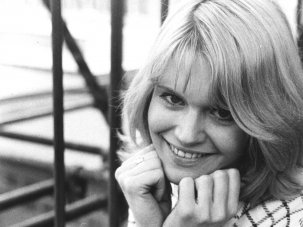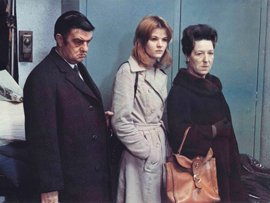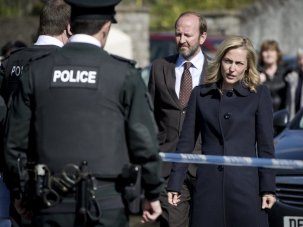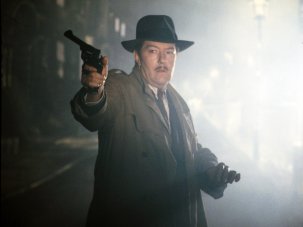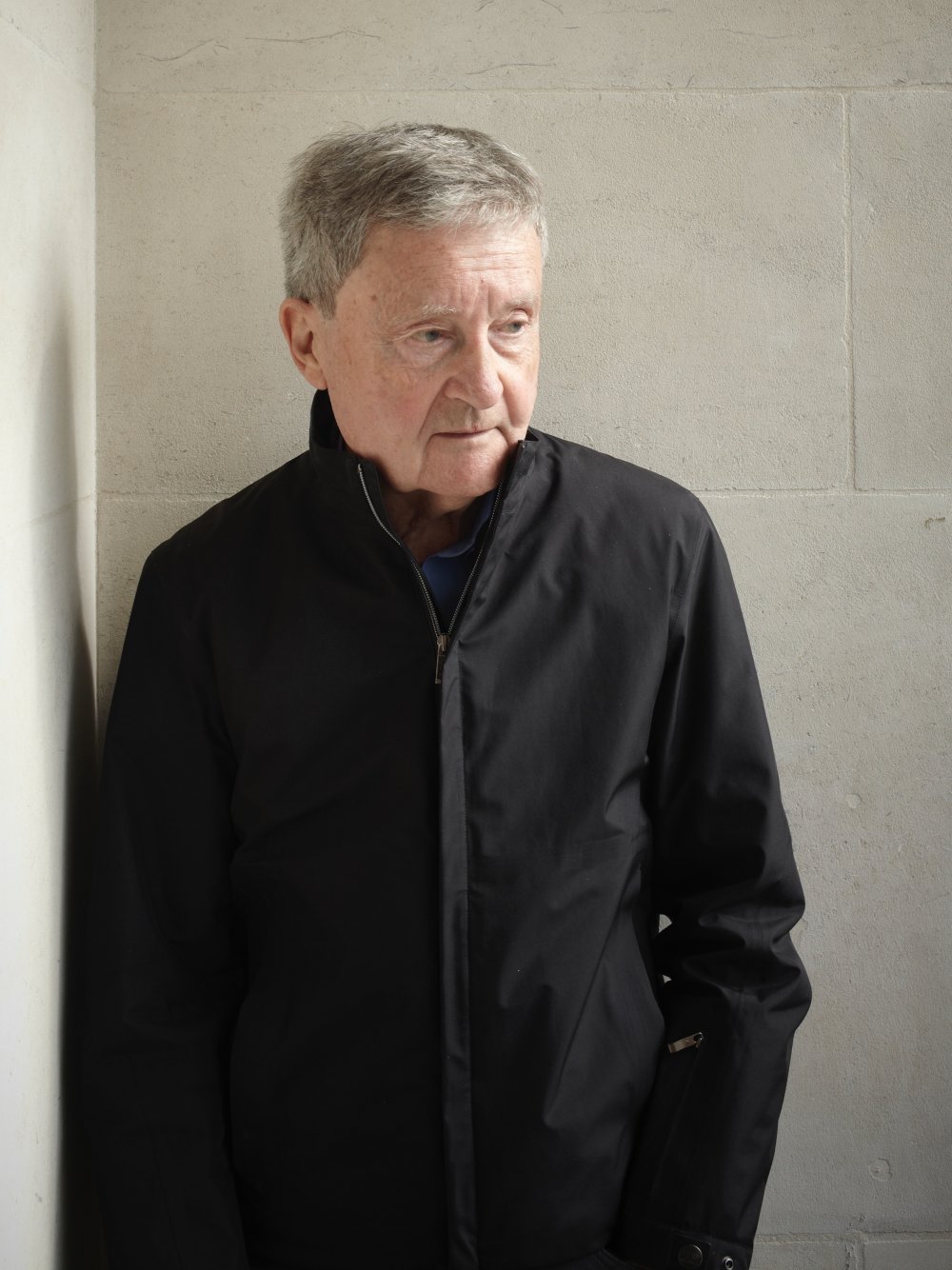
Tony Garnett
Credit: Julian Anderson
Tony Garnett was born in Birmingham in 1936 into a ‘respectable’ upper-working-class family “with a trade in their fingers”. An early beneficiary of the new grammar schools, he became an actor, partly supported by a scholarship to study psychology at UCL. After screen credits including An Age of Kings (1960), Dixon of Dock Green (1955-76), Z Cars (1962-78) and the feature film The Boys (1962) he turned to production, joining the team of the BBC’s groundbreaking drama anthology The Wednesday Play (1964-70). He quickly became one of British television’s most influential producers.
In the mid-1960s, Garnett fought hard to free BBC drama from the television studio and take 16mm cameras on to the streets; throughout that decade and the next he helped shape some of the screen’s most combative, radical drama, in partnership with writers like Jim Allen, David Mercer and G.F. Newman, and directors like Les Blair, Roland Joffé and Ken Loach. His long association with Loach embraced the epochal Up the Junction (1965), Cathy Come Home (1966) and The Big Flame (1969), the feature film Kes (1969) and the incendiary 1975 four-parter Days of Hope, which charted events leading up to the 1926 General Strike.
Similarly contentious work in the 1970s included two television dramas from 1978: The Spongers (written by Allen, directed by Joffé), a harrowing dramatisation of the effect of benefit cuts, and Law and Order (written by Newman, directed by Blair), which asserted endemic corruption in the Metropolitan Police. His consistently provocative approach led to frequent conflicts with BBC managers, sections of the press and ‘clean-up TV’ campaigner Mary Whitehouse. He remains an outspoken critic of contemporary television management.
In 1980 Garnett directed his first feature film Prostitute, set in Birmingham; he subsequently moved to the US where he directed his second feature Handgun (1982), and remained as a producer through most of the 80s.
Back in the UK in 1990, he set up his own independent production company, Island World (later World Productions), achieving critical and popular success with the television series Between the Lines (1992-94), Cardiac Arrest (1994), This Life (1996-97) and The Cops (1998). In May 2013 BFI Southbank launched a two-month celebration of his exceptional 50-year contribution to television and film.
How did you get started in television?
I was a jobbing actor, a very lucky actor, because I was fashionable. Probably just two parts really: neurotic CND undergraduate or Teddy Boy; with glasses or without! I was doing OK but I knew I was third or fourth choice. If they couldn’t get Albert Finney or Tom Courtenay they might think of me. I did a television play called Catherine, written by Roger Smith, and Ken Loach directed it. I didn’t see much of Ken – he was so worried about knitting and pearling the cables and going from one camera to the other. But I did get to know Roger and Jim [MacTaggart].
Roger started to persuade me to come and work with them. Sydney Newman [then BBC head of drama] had asked them to start The Wednesday Play. I was reluctant for a long time. If you’re acting in a good piece with good people it’s – not quite as good as sex, nothing’s as good as sex – but it is the most wonderful feeling. I realised that I’d miss acting, but not the life of an actor. And because the BBC was opening itself up, we had a chance to do interesting stuff.
What kind of an institution was the BBC you found yourself in during the early 1960s?
There were big, big social changes going on. I suppose you could say that [Director General] Hugh Greene was getting Auntie to leave off the corset and put on a miniskirt. It was posh and civil service-y, but there was also a bit of fresh air coming in. They were taking people in off the streets: rough lads like us.
You were the first generation of the grammar-school educated working class entering the BBC. Did you feel you were storming the citadel?
Yes, we probably did – self-importantly, romantically – think that. There was a whole group of us: Smith and me, Troy Kennedy Martin, John McGrath, working-class kids who’d gone through the grammar-school-to-university route. That of course is very interesting because we were de-classed. I think those tensions affected our work.
You’ve described BBC management at the time as a form of “benign neglect”. Did you feel you had a lot of freedom at the time?
Well, no, because we were always wanting more. When I started producing I said, “I want to produce films.” I wanted to go out on real locations. That blimped 16mm camera was there and they were using it in documentaries, and there was a political as well as an aesthetic reason to go out on location. And the BBC said no. The biggest professional fight I’d ever had was to get permission to make films. In the end, with Sydney Newman’s support, [BBC1 controller] Michael Peacock said, “You can do a couple.”
There was a very political set emerging in BBC drama in the late 1960s. How did that develop?
At that time Ken wasn’t political. He was a liberal-minded aesthete, really. Politics was in the air because of Wilson’s government, which everybody thought was too right-wing – goodness me, now! We wanted to do a film [The Big Flame] about a strike on the docks with the dockers taking over the docks and declaring a soviet. But we wanted to base it on a real strike. Jim Allen and [actor and ex-docker] Peter Kerrigan said, “There’s a man in London – his name’s Gerry Healy [leader of the Workers Revolutionary Party],” and he was very helpful.
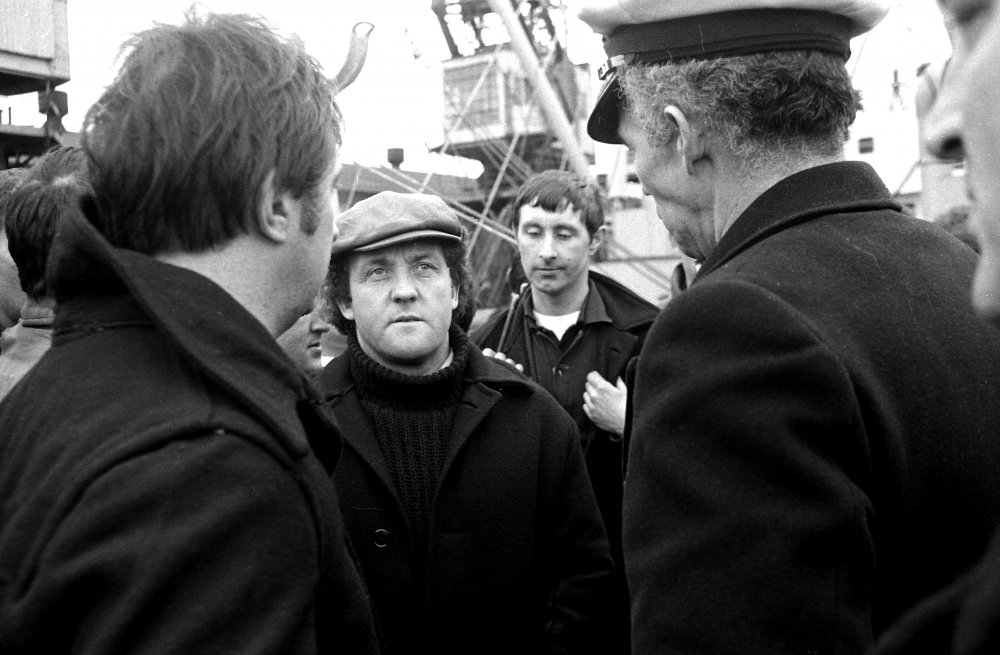
The Big Flame (1969)
In the meantime Clive Goodwin, who was an agent, and I were saying, “We need a forum.” I was very political but I was not happy with any political organisation. So I said, “We’ll put the word out and we’ll have a political meeting at my place, everybody’s welcome.” We put it out to Labour people we knew. Tariq Ali, Ken Tynan would come. Sometimes we’d have 70 or 80 people packed into my place. And Gerry Healy turned up; within a few weeks he’d dominated the whole meeting and the other groups weren’t coming any more and he’d started to recruit. He didn’t recruit me but he recruited some of my friends. And it got more and more serious.
You’re also associated with encouraging experiment and innovation with Loach, but also with Mike Leigh, Les Blair and others.
Ken and I were just so close politically and in our ambitions. I suppose I grew with him and he grew with me. It was different with Mike and Les. They asked me to go and see [Leigh’s] film, Bleak Moments [1971]. There was hardly anybody in there and it was a pretty bleak film. I just fancied something about these kids. I thought they were working very differently to the way I’ve ever worked. I surrounded them with good people. And then [I said]: “Bloom. Do what you do.”
That resulted in Leigh’s Hard Labour and Blair’s Blooming Youth, both for Play for Today in 1973.
Yes. I was in the club having a drink, and [head of Serials] Gerald Savory came in and he said, “What are you up to?” – this is my boss! And I said I was producing a couple of films and he said, “How interesting, who’s written them?” I said, “Er, nobody, they’re gonna be improvised.”
“Oh, how interesting,” he said, “and the directors?” I said, “They’re just two kids.”
He was a bit thoughtful by then: “Oh, well… jolly good luck.” That summed up the very best of the BBC.
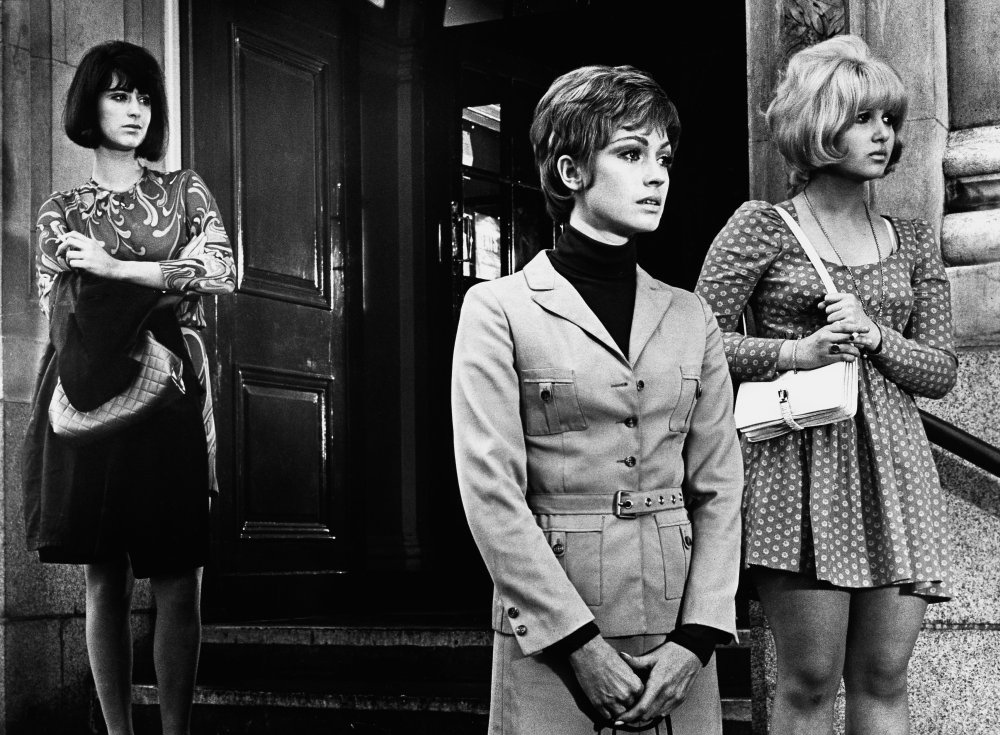
Up the Junction (1967)
The blurring of fact and fiction in drama has been a running battle throughout your career. What made that so infuriating and terrifying for critics and managers?
It’s political. But they won’t admit that so they erect all sorts of aesthetic arguments and ‘the trust of the public’ that the BBC must retain and stuff like that. We were making dramatic fiction and never pretended anything else. We billed a screenwriter, against each character was an actor’s name. But the News & Current Affairs people wanted drama to look like drama, traditional drama. We were crossing a line. I used to say to them, “We make fiction and tell the truth – our truth. It’s the only truth we know. You deal in facts and tell lies.” That didn’t go down too well.
You started as an actor, but your work has often taken an unorthodox approach to casting and performance.
The best director I’ve ever worked with in terms of actors’ performance is Ken, without a doubt. Ken and I would go around the working-man’s clubs and cast the comedians, because they had the comic timing. Then, on the location, first of all you keep the paraphernalia away, then you shoot and shoot and shoot. No actor can ever do anything wrong. Ever. It’s an act of enormous courage that should be rewarded with love and thanks. They may offer you things that are not appropriate, but you only need one take. So Ken, after each take, he says, “Very good – let’s do that once more.”
All I’ve done really, all my life, is love good work out of people. If you create that atmosphere, within a framework of professional discipline, then people relax and do better work than they ever thought they could.
The abortion debate has moved on since Up the Junction but the social problems described in Cathy Come Home are still very much with us. How do you feel now about drama’s capacity to provoke change?
In the optimism and the arrogance of youth, I thought we could make a film and change the world. And clearly we couldn’t. It’s not what films do anyway. They might ‘raise consciousness’, but you don’t change the world. Cathy Come Home and The Spongers now, really you would expect them to be of occasional interest to film students or archivists. But, particularly with these welfare cuts, they are contemporary films. And that is shameful. There are more homeless this year than there were in 1966 when we made Cathy. And The Spongers, that family are just exactly what’s happening now – but worse.
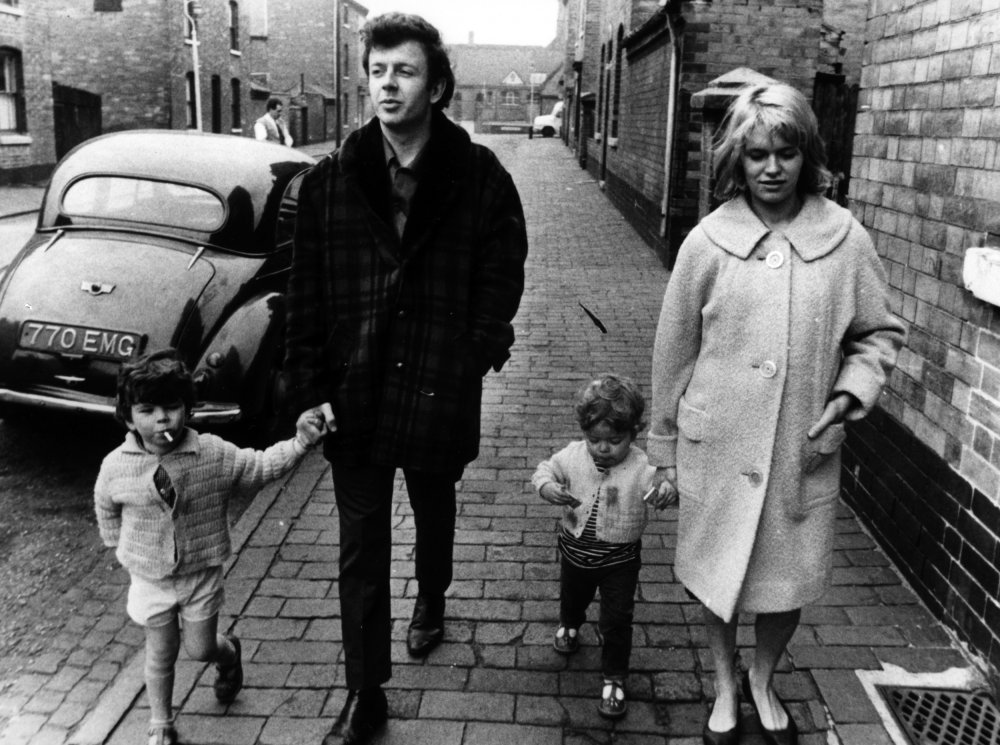
Cathy Come Home (1966)
It’s striking that a lot of radical TV drama from the late 1960s to the early 1980s seems to target the mainstream Left as much as the establishment and the Right.
The criticism of the Labour Party, that it safely delivers the working class to the establishment, is just historically obvious and they’re well assisted by the trade-union bureaucracy. That’s one reason why we did Days of Hope. But the small groups to the left of the Labour Party don’t get any purchase, often for good reason. We’re in a country that is very sophisticated politically. We have a very sophisticated ruling class. We have various means of allowing and then dissipating radical energy. We have a press which is owned by billionaires and large corporations, and a population which – although it sometimes rises up in anger – is not directed politically and most of the rest of the time is phlegmatic, and a middle class which still feels it has a lot to lose, and enough of a working class with aspiration.
The tide has been running against the Left since 1979. But you just wonder now whether there isn’t going to be an opportunity of some kind.
I think I’m quite a political moderate, really. I’ve always reluctantly voted Labour. But as soon as I saw Blair I knew that the Labour Party, which has always sold out, had been taken over by Tories. I couldn’t easily vote Labour then and certainly [not] after Iraq. But who else do you vote for? They don’t say they are socialists but the Greens, apart from arguably being right about the biggest question, are very sound about a lot of other stuff. So I would vote Green now, unless voting Green might let the Tories in.
Kes was quite different in tone and style from your work with Loach up until then.
I knew as soon as I read [Barry Hines’s novel] that we had to make a film of this, because of that powerful central image: that hawk. Tony Richardson got us the money, for which I’ll always be grateful, and United Artists put money up, but the budget was tiny so we had a lot of creative freedom. Ken was evolving his style and [DP] Chris Menges was developing his. It was different: it was 35mm, colour – they wouldn’t let us shoot black and white.

David Bradley and Tony Garnett, Kes (1969)
But it almost never got shown. I showed it to the man from UA, and as he walked out he said to me, “I would have preferred Hungarian”! He couldn’t understand a word of it. The distributor here refused to put it out. Finally another distributor put it out in five cinemas in Yorkshire and it broke the house record in every one, so then it came to London. They wanted us to do subtitles everywhere south of Nottingham.
You directed your own first feature Prostitute in 1980. Was it a long-standing ambition to direct?
No, the opposite. Everybody kept telling me, “You should be doing this,” so in the end I said, “Oh fuck it, I’ll do one.” I used it to play with all sorts of ideas, mainly to do with performance and confusing the audience about what they were actually watching. But I didn’t like directing. I’ve got a very low boredom threshold. I think good directors are obsessives, and I couldn’t stand just working on one thing and I couldn’t bear hanging around. I was bored silly.
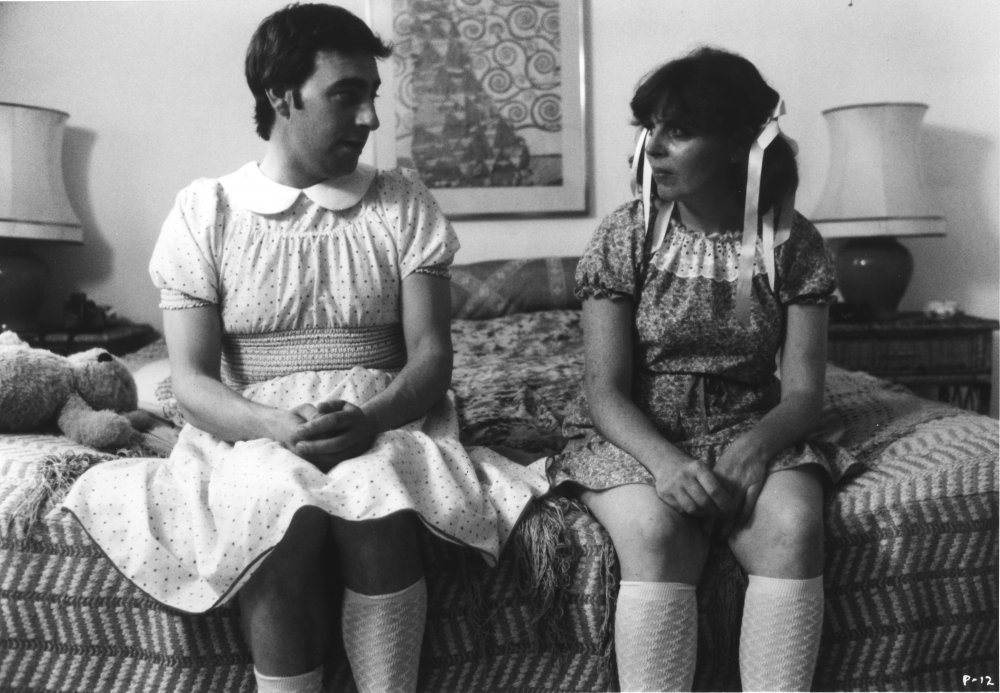
Prostitute (1980)
But you did it again not long after with Handgun, in Texas.
Well, I went to America soon afterwards and I wrote another screenplay. And I thought, “I’ve got the screenplay and it’s low-budget, I may as well.” It was a very interesting experience being in Texas at that time but, again, I had the same feeling. The editing was quite interesting and I liked working with the actors, but the process… it’s not for me.
You stayed through most of the 1980s in Hollywood, working on some quite uncharacteristic titles – including Sesame Street Presents Follow That Bird (1985).
By the end of the 70s I was absolutely exhausted with all the battles here, and enormously disappointed politically. I just wanted to get away, to refresh myself.
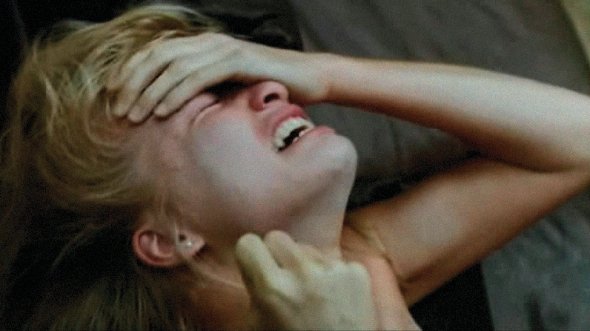
Handgun (1984)
During the 60s and 70s there was quite a lively independent world in America. So I went to LA, and of course I missed Thatcher and walked into Reagan. The independent film thing didn’t close down but it was very difficult. And all Hollywood wanted to make were big-budget shoot-’em-ups. Well ideologically I couldn’t work on a movie like that and anyway I wouldn’t know how to.
They asked me to do the Sesame Street movie. I thought it would be fun. And it was a nightmare. The Children’s Television Workshop thought they were being raped by Hollywood and Hollywood thought they were dealing with a bunch of New York liberal amateurs. But my little boy got to meet Big Bird and Oscar the Grouch.
Did you gain much else from your time in America?
It was painful in some ways because, suddenly, it was, “Tony who?” Our films were wine that didn’t travel. So I literally started again, and it was like a cold shower. But it was very good for me. Hollywood is full of psychopaths – functioning, legal psychopaths, which is entertaining but dangerous to watch – but it’s also full of such talented people.
What was it like coming back at the start of the 1990s?
I came back to a different Britain. I didn’t want to work in the art film world here. The BBC was in a sulk over [restructuring by Director General John] Birt, it was a very unhappy place. And then John Heyman, who was a movie financier, asked me to start this production company. So I did.
A new ecosystem of independent production had developed by then.
In the 70s there was a campaign to start independent production, and I sympathised, but I took no part in it. I thought it was a petit-bourgeois diversion. It was no accident that Willie Whitelaw, a canny operator, persuaded Thatcher it would be a very good thing, because it not only conjured up this Tory idea of companies and entrepreneurs but it also made producers crush the unions. Now there are just a handful of suppliers – about the same number of companies in Soho as there would have been with offices in-house at the BBC. No creative benefit I can see. Some have made a few bucks.
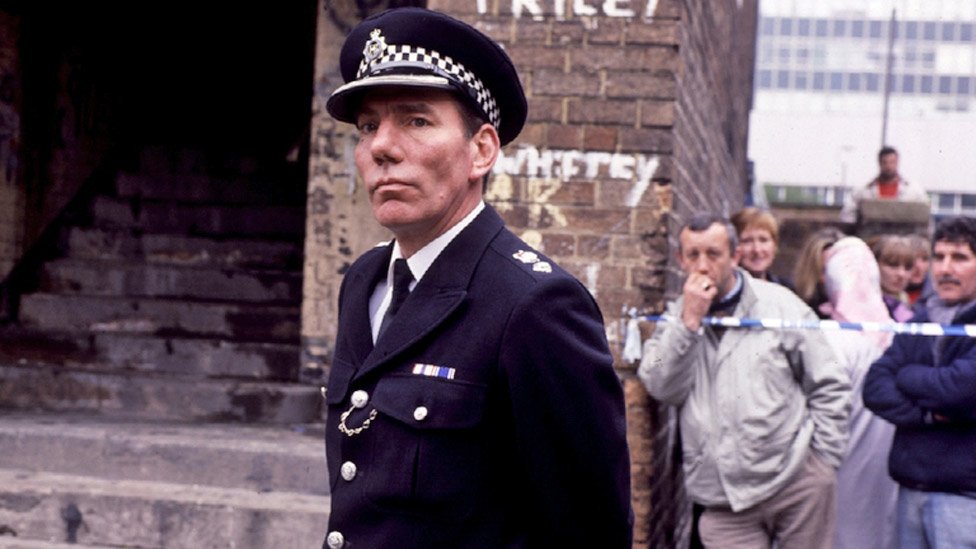
Between the Lines (1992-95)
You’d been quite disdainful about series in the past, but at World you created a new kind of television series with things like Between the Lines and This Life.
Traditionally in renewable series, the rule was there should never be any character development. Columbo is Columbo in exactly the same way in every episode. We tried to develop character over many, many hours. On Between the Lines, when [writer] John Wilsher and [script editor] Tim Vaughan came to me and asked if I wanted to do a cop show I said, “No, I don’t.” I’d done Law and Order. They said, “We want to do a cop show in which the police investigate the police.” I said, “I’ll have it!” This Life was a soap – and we had a lot of fun playing with that genre too.
The approach to politics was quite different. These series weren’t necessarily unpolitical but they’re very different in approach.
The phrase I came up with was ‘Trojan horse drama’. I had to deliver what they wanted but within that I could infiltrate my own, or our own, piece.
The Cops, for instance. I wanted to do a series set on some Northern sink estate that had started to lose its prosperity in the 70s, where all the industries had closed and there was a lot of hopelessness, worklessness, illness and drugs. I wanted to show the other side of Blair’s paradise. So we did a cop show. We did the series I wanted to do, inside a cop show. I hired a whole lot of kids, just like I did on This Life, and they showed enormous courage. No writer could even begin to write for The Cops unless they’d spent a few weeks out with the cops. And they came back with more stories than they could even tell. I enjoyed that show.
You’ve had your share of run-ins with the police.
On The Cops, the Manchester police gave us lots and lots of cooperation, until they saw the first series. And then they gave us none whatsoever! Which is fair enough. My position was: I’m not in the business of producing public relations for Manchester Police. Law and Order was different. Outrage – from the press, from the Met, from parliament. Absolute outrage. Then a year or two later the new commissioner, Robert Mark, publicly said that it was his ambition to arrest more criminals than he employed! But by Between the Lines the Met had got more sophisticated. So basically the way they spun it was, “Well, of course there’s absolutely nothing in this, but it is good entertainment, isn’t it?” Which is a nice way to deal with it without confronting what it’s saying.
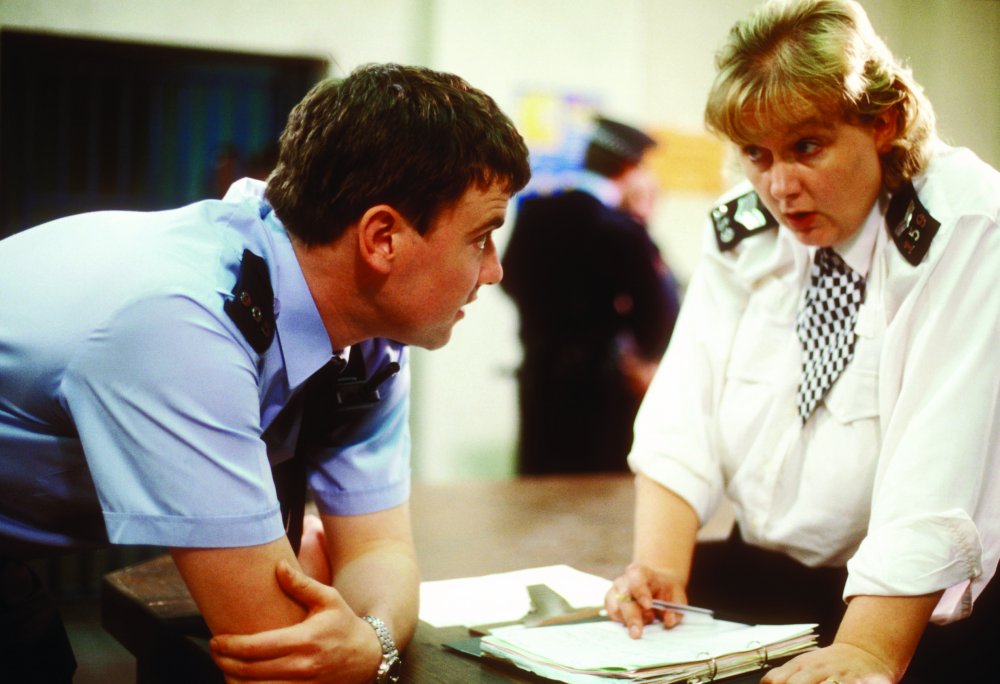
The Cops (1998-2001)
There’s still some political television drama – Peter Kosminsky, for example – but the character has undeniably changed. Is it a question of opportunities being denied or is there less political work being offered?
I think both really. The BBC responds to the atmosphere in the country and, clearly, the country is different and there’s a generation now that’s been Thatchered. The problem at the BBC is that [management consultant] McKinsey came in. Their slogan is: “If you can measure it, you can manage it.” The problem with a creative enterprise like the BBC is that you can’t measure it. So you can only manage it by destroying the creativity. But creativity has a way of coming through. You see little flowers coming through a crack in concrete. It’s a question again of balance. Drama is dominated by high-volume shows – they’re junk food. So the BBC is creatively, culturally poisoning people.
Where do you think British television is heading?
Well, television is over. People are watching a lot of television still, but not on television sets. New technologies are hugely exciting and disruptive. They always are.
The BBC should embrace them creatively, not just technically. They should take a small percentage of drama budget and spend it all on the internet, give a chance to a whole generation of kids. Commission all sorts of things and tell them to just excite us. And fail. Try again, fail better. It would be an explosion of people’s talents and new ways of telling stories. When I was young the barriers to entry to filmmaking were huge. Now anybody can do it, and that’s a socialist’s dream, really, that creativity is for everyone.
Your third novel is about to come out. Is this a new career for you? Is there a continuity with your other work?
I’ve spent 50 years thinking about nothing else but how to tell a story on screen. I was tired of 60-hour weeks, no weekends, crap hotels and I wanted a new challenge and a different pace of life. So now I can spend all morning at the London Library, do a thousand words – or not – and I can tell my story without having to raise millions of pounds or fight executives. But they’re all political. They’re about love and politics. Life is love and politics, isn’t it?
-
The 100 Greatest Films of All Time 2012
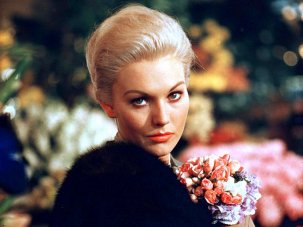
In our biggest ever film critics’ poll, the list of best movies ever made has a new top film, ending the 50-year reign of Citizen Kane.
Wednesday 1 August 2012
-
The Digital Edition and Archive quick link
Log in here to your digital edition and archive subscription, take a look at the packages on offer and buy a subscription.




